30 “Secret Weapon” Ingredients That Transform Recipes Into Mouth-Watering Meals, As Shared In This Online Thread - Bored Panda
There’s something about swirling around the kitchen that makes you instantly channel your inner Gordon Ramsay. Because cooking is an adventure where a bit of creativity and, let’s face it, running out of key ingredients is usually the start of the mouth-watering creations that follow. Whether you’re a cooking newbie or a seasoned pro, it’s satisfying to take your gastronomic skills to the next level.
One thing that can up your culinary game right away is an added bit of deliciousness and extra flavor that instantly elevates your dishes. So today, we will talk about the unfailing components enthusiasts use to enhance their meals. People on the 'Cooking' subreddit have been sharing their pieces of wisdom after user PhilipLynott asked: "What is one ingredient that completely changed the way you cook and now you use it all the time?"
The Redditor kicked off the thread by saying that miso paste is "absolutely fantastic for vegetables, soups, spuds, the way it makes things taste is unbelievable!" We have gathered some of the most illuminating responses to share with you. So grab a pen and a notebook, and enjoy scrolling through this list. Keep reading to also find our interview with food and travel blogger June d'Arville. Then be sure to upvote your favorite replies and let us know about your own "secret weapons" in the comments!
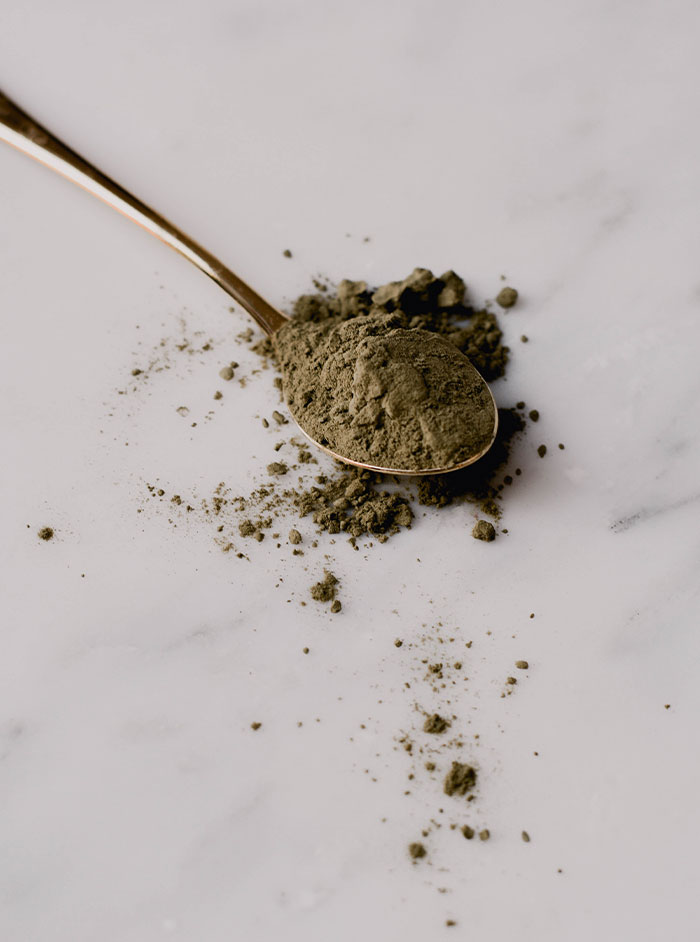 Mushroom powder. I often find large boxes of discounted gourmet mushrooms and dehydrate them, then reduce the smaller bits into a powder I can then add to many dishes that needs a bit more of umami and depth of flavor.
Mushroom powder. I often find large boxes of discounted gourmet mushrooms and dehydrate them, then reduce the smaller bits into a powder I can then add to many dishes that needs a bit more of umami and depth of flavor.
Everyone has a different relationship with food. But even when some of us manage to burn everything we lay our hands on, cooking is still an extremely rewarding and enjoyable experience. And no matter your skill level, there are always benefits to learning something new.
Sure, numerous complicated techniques allow aficionados to produce fantastic dishes. But this also reveals a common misconception that you need to know the ins and outs of the cooking business and learn countless complex tricks before you can create spectacular dishes. In reality, nothing could be further from the truth.
To gain more insight from an expert about easy ways to make food look and taste fantastic, we reached out to Belgian food and travel blogger June d'Arville. Feeling a deep love for everything food-related since she was a child, June started a blog with her husband called Luc & June. In an attempt to share their passion, they have been endlessly blogging about cooking, delicious-looking food, fascinating stories, and advice on travel destinations around the world.
"Recipes are nothing without ingredients," June told Bored Panda. Components are a major aspect of cooking, and, most importantly, they are often the key to what it takes to make or break a dish.
"I remember a chef once said that the food you prepare in your kitchen is only as good as the quality of the ingredients that you use. You can’t buy the cheapest steak and expect it to taste like wagyu," the food blogger explained.
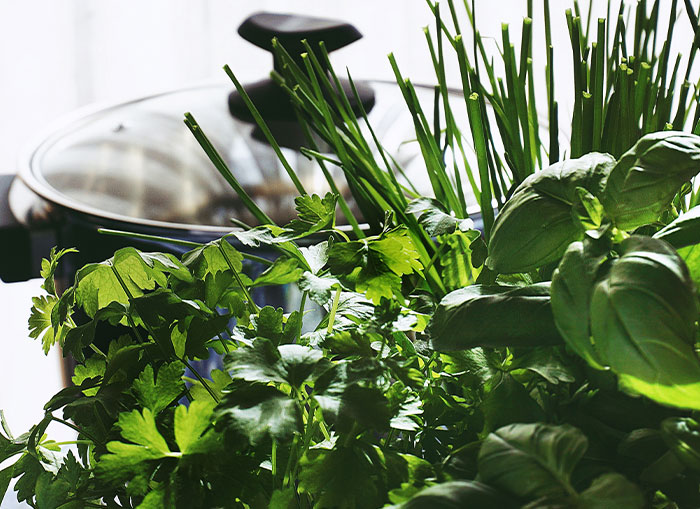 I love how simple you can go with your food if you just add a few fresh herbs. It really elevates anything.
I love how simple you can go with your food if you just add a few fresh herbs. It really elevates anything.
Moreover, when we gather good products to make a successful dinner, they don’t require a lot of side flavors. "In cooking, the term 'less is more' is a beautiful thing but, unfortunately, highly underrated. That is why working with substitutes in a recipe is quite a challenge as well."
June pointed out she sometimes receives comments or emails from readers, saying they tried out this or that recipe and it wasn’t good at all. "But they changed or left out half of the ingredients or condiments and used another protein. Substitutes are just close alternatives, not a magical wand," she said.
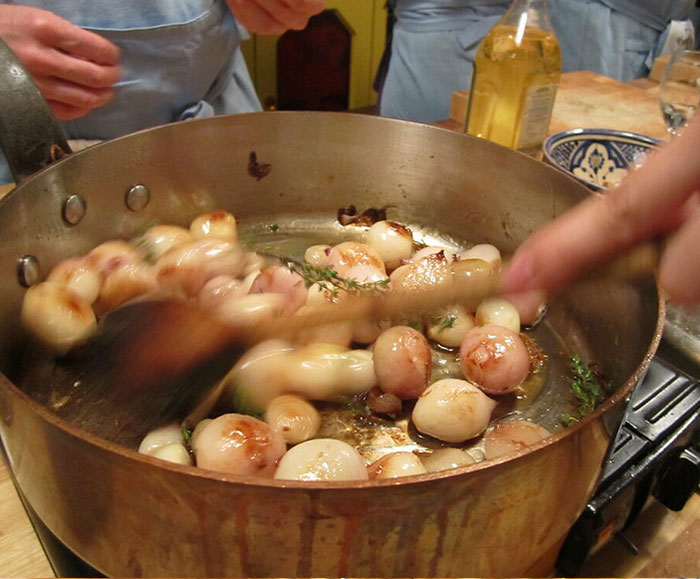 Shallots. You can use them in any recipe that calls for an allium. If garlic would be too pungent or overwhelming they are perfect. They're often more delicately flavored than onions. Fried crisp and they make an amazing garnish. Pickle them and serve them with salads. They are an essential ingredient in dressings. You can grate them into sauces (especially yogurt based ones) for a great oniony depth.
Shallots. You can use them in any recipe that calls for an allium. If garlic would be too pungent or overwhelming they are perfect. They're often more delicately flavored than onions. Fried crisp and they make an amazing garnish. Pickle them and serve them with salads. They are an essential ingredient in dressings. You can grate them into sauces (especially yogurt based ones) for a great oniony depth.
Hell, you can bake them up on their own and eat them too.
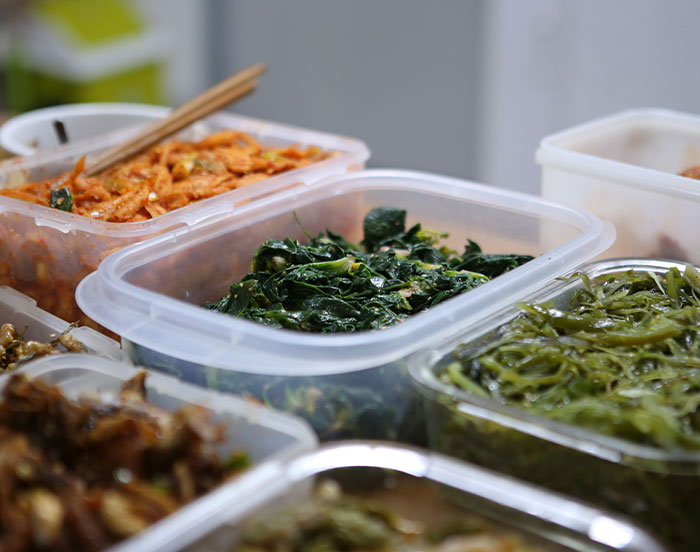 Kimchi. I honestly put kimchi in everything: soups and stews, with eggs, sandwiches, on grilled cheese, in burritos…! I love it the spice + fermented bite + crunchy cabbage is just perfect for me in a lot of dishes.
Kimchi. I honestly put kimchi in everything: soups and stews, with eggs, sandwiches, on grilled cheese, in burritos…! I love it the spice + fermented bite + crunchy cabbage is just perfect for me in a lot of dishes.
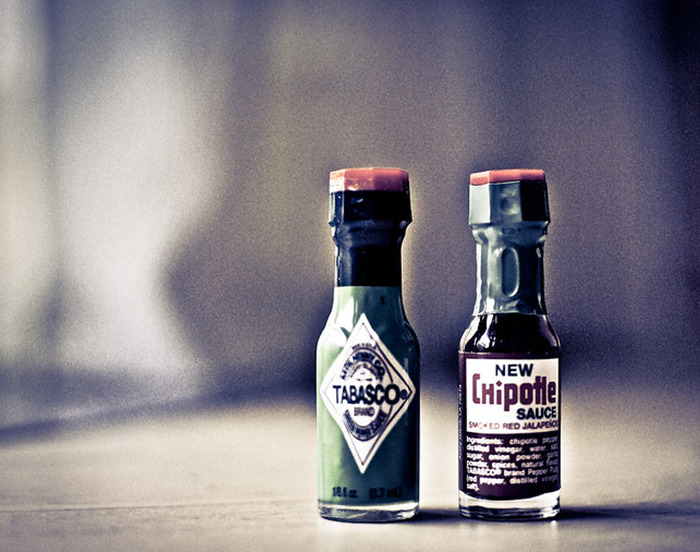 Tabasco Chipotle sauce. Adds a smokey flavour without any real heat to so many sauces. Its my new secret ingredient and transforms so many dishes by just adding that something extra
Tabasco Chipotle sauce. Adds a smokey flavour without any real heat to so many sauces. Its my new secret ingredient and transforms so many dishes by just adding that something extra
One truly fascinating thing about cooking is that it offers endless opportunities for experimenting. Of course, being told to use your creativity in the kitchen when all you did in the past was follow the recipes to a T can be intimidating. And when we finally gather the courage to shake things up and something goes wrong (and it often does!), it can also be discouraging. But every once in a while, it’s oh-so-rewarding to see our efforts lead to wonderful creations in the kitchen.
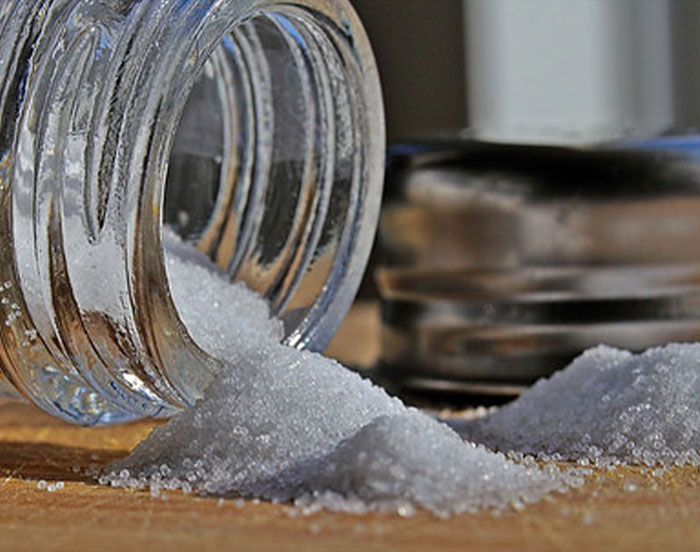 Salt. I had to learn how to use it with purpose so that flavors are enhanced and not overwhelmed by it.
Salt. I had to learn how to use it with purpose so that flavors are enhanced and not overwhelmed by it.
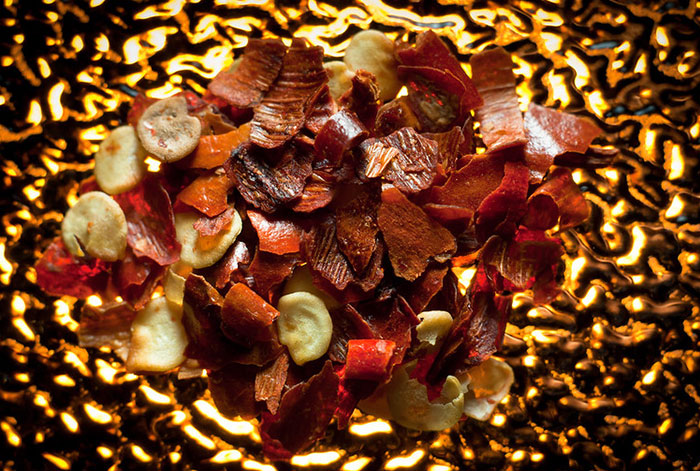 Relatively basic, but. Crushed red pepper flakes. A decade ago they'd never *been* in our house. Now I use them basically every day.
Relatively basic, but. Crushed red pepper flakes. A decade ago they'd never *been* in our house. Now I use them basically every day.
More recently: those little tubes of tomato paste. Being able to add just a small amount of tomato to a dish that would benefit from it is a godsend.
Sometimes, it’s best to see cooking instructions as guidelines and inspiration. One thing that makes this process much easier is becoming more aware of the countless ingredients our world has to offer.
"The more you cook and experiment with food and cooking, the better you will become at it," June noted. "If I look at how I cooked, let’s say, 15 years ago, I hardly knew anything about it. If you would have asked me then to make, for instance, a ramen soup, I would have scratched my head not knowing where to start. Food blogging made me explore and experience different flavors and cuisines I didn’t grow up with. It takes time, but enjoy the culinary ride!"
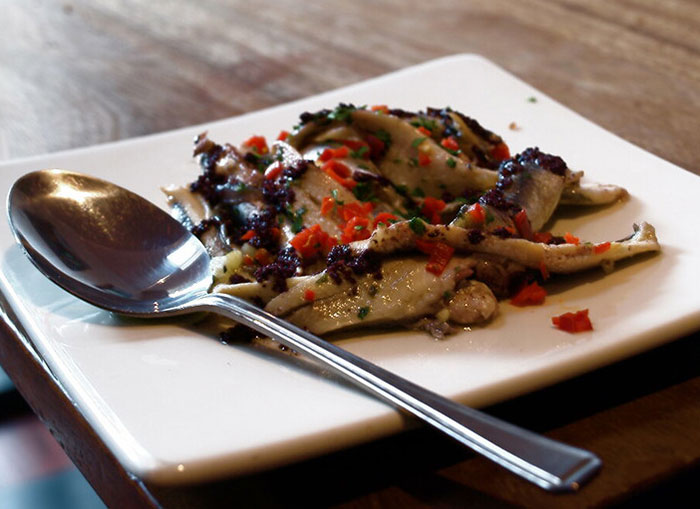 Anchovies (in oil) - great umami boost to almost everything, and they absolutely 'disappears' in most foods, so don't worry about the texture.
Anchovies (in oil) - great umami boost to almost everything, and they absolutely 'disappears' in most foods, so don't worry about the texture.
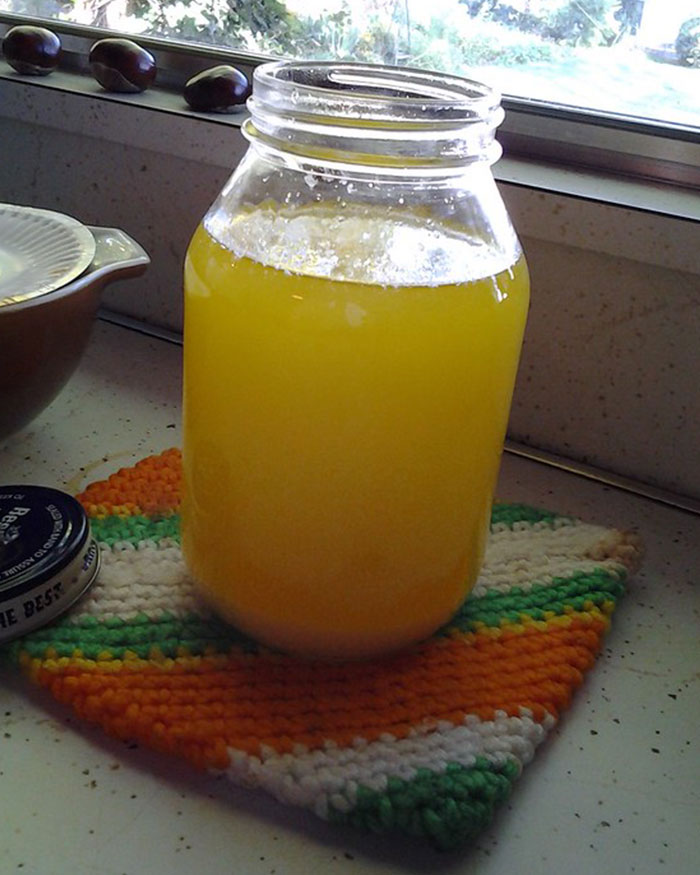 For me it's ghee. Ghee is clarified butter and when I went to Ayurveda school, I did my thesis on ghee as I am also a biochemist and in Ayurveda it is considered the "best of all oils" for health reasons. It also has a high smoke point for cooking and I use it a lot for things like scrambled eggs and sauteed vegetables. Ghee made from butter from grass fed cows has heart health benefits as well!
For me it's ghee. Ghee is clarified butter and when I went to Ayurveda school, I did my thesis on ghee as I am also a biochemist and in Ayurveda it is considered the "best of all oils" for health reasons. It also has a high smoke point for cooking and I use it a lot for things like scrambled eggs and sauteed vegetables. Ghee made from butter from grass fed cows has heart health benefits as well!
Vinegar, lemon, any kind of acid. Years ago I read or saw some cooking show saying that if your dish is tasting kind of meh or it tastes like it needs more salt but you already added plenty, you add some sort of acid and it brings out the flavors.
We wanted to know if June could share some of her favorite ingredients that could immediately elevate our skills, and she was kind enough to reveal a few. "I am an avid user of fish sauce," June told us. "I like the subtle salty flavor it adds to food, especially in soups and marinades. And it is not as harsh as the usual pinch of salt."
"Sugar is also another ingredient that I learned to appreciate while traveling in Asia and taking cooking classes there," she added. "I do not have a sweet tooth at all, so for me, adding sugar to food was a huge no-no. Until I started to see what sugar can do to savory dishes, such as marinades, winter dishes and tomato sauces."
The food blogger pointed out that finding the right balance between the sweetness and saltiness in a dish is such a satisfying challenge. "Fresh herbs is another thing that can really brighten up a dish without any effort. Think of fresh mint and cilantro."
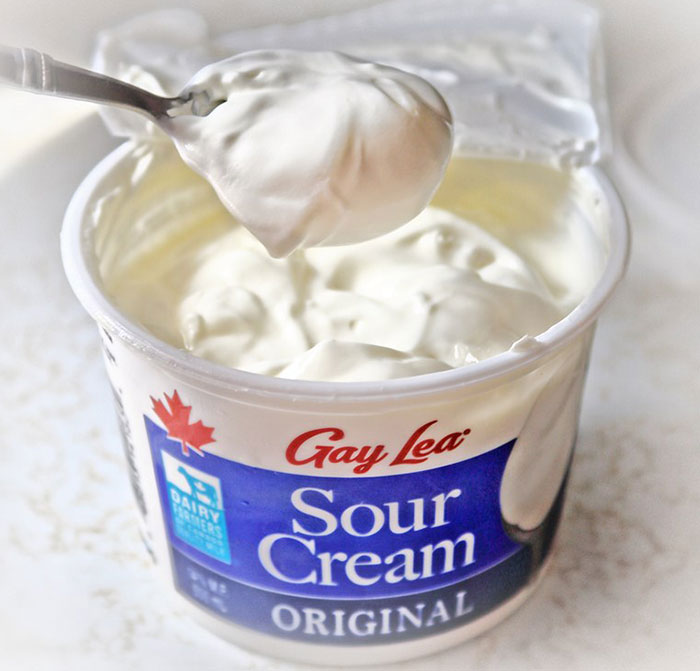 Sour cream, even just a small dollop, makes gravies and sauces richer and creamier (if you add a lot, you wind up turning all your food into stroganoff, so be judicious). This is particularly useful when you're reheating leftovers and the texture is off, or if things are overly seasoned because sour cream dilutes the intensity, especially when it's salty or spicy. I also like to add a hefty spoonful of sour cream when I make casseroles without going the "use cream of whatever soup" route -- you get a creamy texture, but without so much heaviness and salt.
Sour cream, even just a small dollop, makes gravies and sauces richer and creamier (if you add a lot, you wind up turning all your food into stroganoff, so be judicious). This is particularly useful when you're reheating leftovers and the texture is off, or if things are overly seasoned because sour cream dilutes the intensity, especially when it's salty or spicy. I also like to add a hefty spoonful of sour cream when I make casseroles without going the "use cream of whatever soup" route -- you get a creamy texture, but without so much heaviness and salt.
A small amount of sour cream (like, 1 tablespoon for 2-3 eggs) is also terrific blended into scrambled eggs before you cook them. The eggs get fluffy and silky as a result.
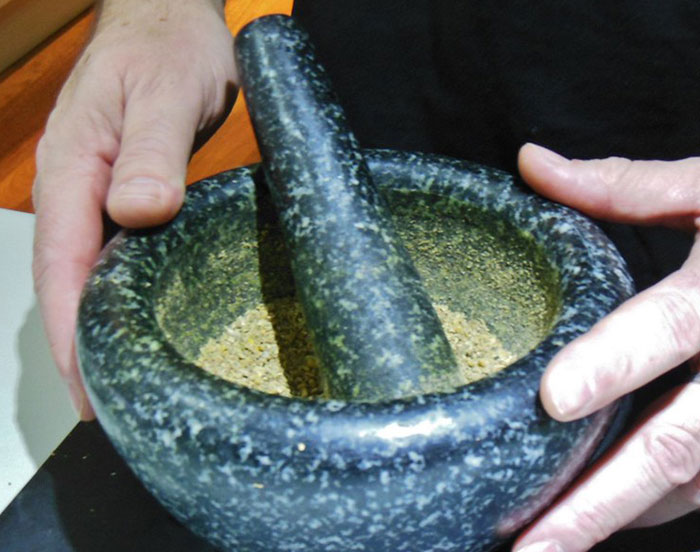 Berbere is an Ethiopian spice mix that I now believe the be the finest mix available. It can be quite hot but the depth of flavor is incredible. A simple corn and cheddar quesadilla gets transformed into fine dining with a quick dusting of this stuff!
Berbere is an Ethiopian spice mix that I now believe the be the finest mix available. It can be quite hot but the depth of flavor is incredible. A simple corn and cheddar quesadilla gets transformed into fine dining with a quick dusting of this stuff!
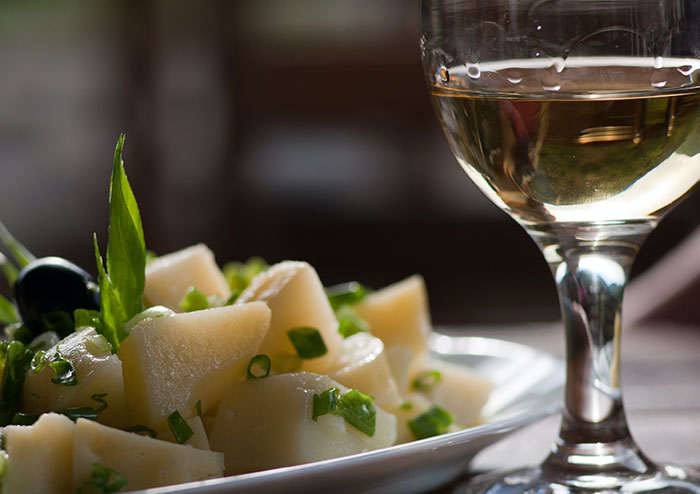 Might sound really strange as I am European, but wine. I never liked drinking it so the thought of cooking with it was strange to me. Until I made my first authentic Bolognese. Went to buy some more bottles, a wine opener and reusable plastic corks to reseal a bottle that same week.
Might sound really strange as I am European, but wine. I never liked drinking it so the thought of cooking with it was strange to me. Until I made my first authentic Bolognese. Went to buy some more bottles, a wine opener and reusable plastic corks to reseal a bottle that same week.
So if you strive to learn more about the joy of cooking, just keep going! "Learning how to cook takes time, but you will definitely get there. Be patient," she advised. "Start off by making dishes that you like and know well. And along the way, throw in a couple of cooking challenges, small ones in the beginning. Like making fresh pasta, or folding gyoza, or making a Thai curry."
"Make simple store-bought foods from scratch for a change, like green pesto or fresh tomato soup. Gradually start to get used to flavors and condiments you don’t know well. Write down what you do, why not start a blog about your experiences? Enjoy your creations and learn from your mishaps. Just take your time and keep it fun," June concluded.
Sorry to sound mundane but mustard and mustard seeds did it for me.
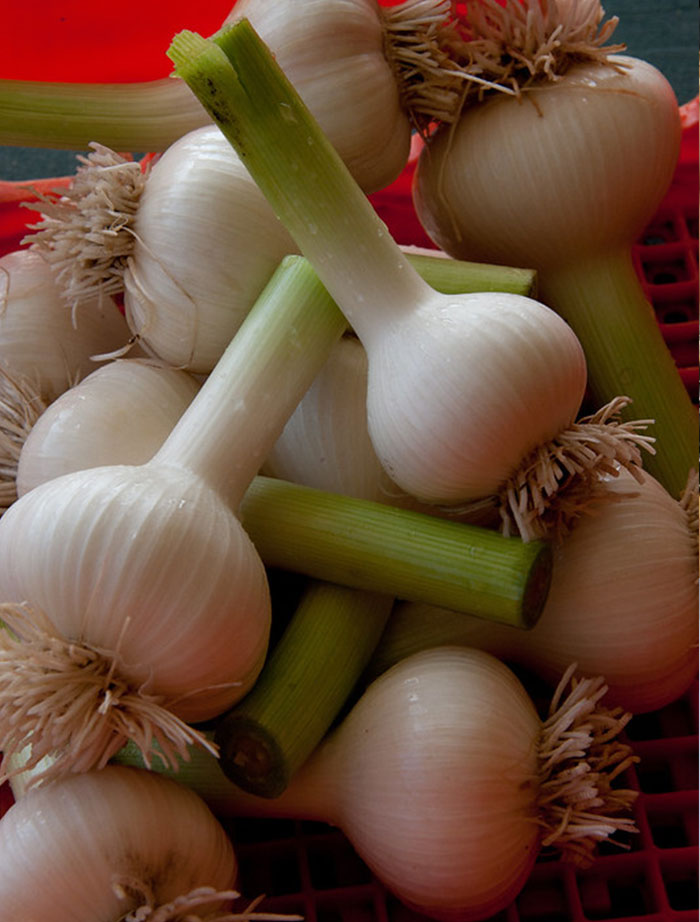 Fresh, non-chinese, garlic.
Fresh, non-chinese, garlic.
Early on, I used to use pre-minced garlic and then I transitioned on to the whole, but cheap, rooster garlic from China, which is everywhere. Now, finally, I have learned to appreciate fresh local garlic. My god, does it make a huge difference.
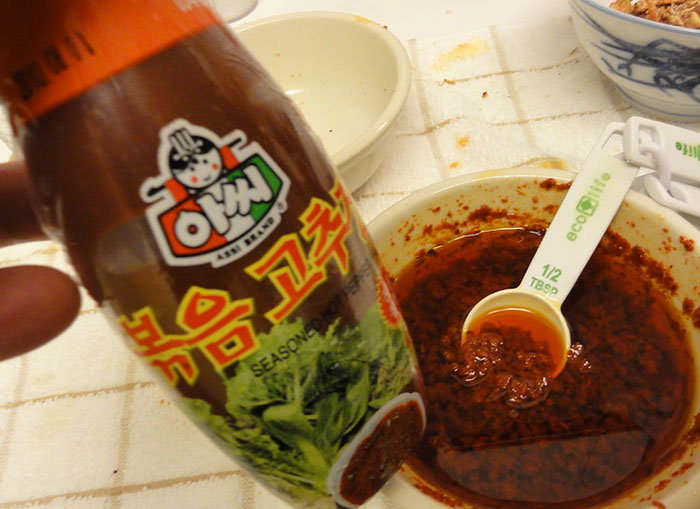 Gochujang has changed my life. I don’t find the one I’ve bought all that spicy (sometimes I add gochugaru for some extra kick) but the flavor is just so unique and delicious. This is kind of sacrilege, but I like the make a mayo out of it for a spread or dip that makes everything better.
Gochujang has changed my life. I don’t find the one I’ve bought all that spicy (sometimes I add gochugaru for some extra kick) but the flavor is just so unique and delicious. This is kind of sacrilege, but I like the make a mayo out of it for a spread or dip that makes everything better.
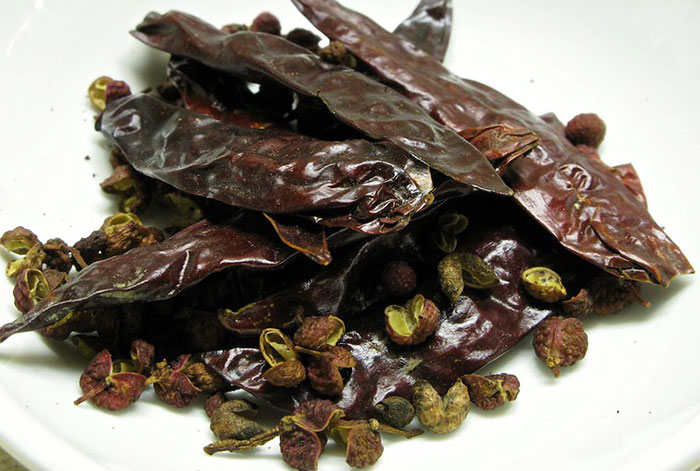 I don’t know if it changes the way I cook, but I recently started adding Szechuan peppercorns into my pepper mill along with tellicherry, roughly 1:3, and that’s been really nice
I don’t know if it changes the way I cook, but I recently started adding Szechuan peppercorns into my pepper mill along with tellicherry, roughly 1:3, and that’s been really nice
White pepper. It adds a unique 'je ne sais quoi' to anything you put it in, it's my secret ingredient in so many things.
Balsamic Vinegar.
I've never been a fan of sour food (salads, cakes, soup, citrus, ect.). I would just never ate more than three bites of any sour foods. That was until my mom brought a bottle of balsamic vinegar to recreate a salad we ate at a restaurant once. That bottle changed the way I approached salad/bread.
Now I have a bottle on my dinning table. I put it on any salad I ate. I put it inside of my sandwiches for the flavor. I toast bread just to eat it with the balsamic vinegar. I even dipped potato chips in them just to get some more. I ate literally anything that have hot bread/cold vegetables with the vinegar. My family doesn't really like the taste (maybe because I used it way too much and way too frequently and prob not in the proper dishes) but after I moved out that became less of a problem. I have a problem. Please help.
P.S. Tried Miso paste. Was mid. Not for me (prob because our cooking used a lot of fish/oyster sauce + MSG so the flavor isn't needed)
Nothing crazy - oregano. But growing up no one put seasonings in sandwiches, just mayo and the like. Oregano goes great in ham sandwiches, turns out. Now I use spices in all my sandwiches, p. much, haha
from "food recipes" - Google News https://ift.tt/9bwHdiI
via IFTTT




Comments
Post a Comment